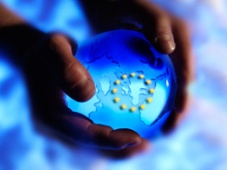European Commission opens debate to change gears in the fight against poverty

Today, the European Commission launches a public consultation on the future of EU Development policy. Faced with the triple challenge of economic, food and environmental crises, but also the generally encouraging economic performance of Developing countries, the Commission wishes to collect views on how the EU can best support developing countries to speed up their progress towards the Millennium Development Goals and beyond. Building on previous achievements, the Commission proposes four main areas for debate, focusing on the impact of EU aid, the facilitation of more inclusive growth, the promotion of sustainable development, and durable results in agriculture and food security. Following the public consultation open to EU and partner countries, the Commission will table a Communication on a Modernised EU Development policy in 2011.
“EU's aid must help provide a decent living for all, and give people a chance to build their future. EU citizens are still committed to support the poorest countries, and they expect concrete results. I want to address these expectations by making sure that the EU’s assistance has a high and lasting impact on the ground", said EU Commissioner for Development, Andris Piebalgs. "Our policy has to address the root causes of poverty and act as a catalyst to create conditions for inclusive growth in our partner countries. The mandate I received is to work for poverty reduction and better coordination of EU aid, which represents more than 50% of global aid. I am convinced that with a modern policy and the adequate instruments, the EU will change gears and support the take off of developing countries on the long run. ”
The Green Paper seeks to launch a debate on how best to adapt EU development policy to the needs of developing countries and to the added value of EU action. The Commission recognizes that differentiated and flexible approaches will have to be followed. However, it raises questions around four common objectives to be pursued collaboratively by the EU and its Member States:
- How to ensure high impact of EU development policy , so that every euro spent provides the best value added and value for money, the best leverage and the best legacy of opportunities for generations to come. European aid must focus on areas where a clear added value can be shown. This starts by targeting four fundamental requirements: human development, including health and education, and security as preconditions for any country's development; growth and social inclusiveness for any long lasting engagement. This also covers support for good governance, coordination of aid and coherence between policies.
- How to facilitate more, and more inclusive, growth in developing countries, as a means of reducing poverty. Aid alone won't be sufficient for supporting countries' capacity to achieve poverty reduction, and growth can have a multiplier effect through employment creation and social protection. The question arises whether the EU should consider new Joint Strategies for Inclusive Growth in partnership with the individual or regional groupings of developing countries, also involving private-sector stakeholders. These strategies could cover such key issues as ensuring legal and regulatory framework, access to credit or decent work. This objective also relates to how best development policy could serve to reinforce regional integration and ensure a positive integration of developing countries in the global trade.
- How to promote sustainable development as a driver for progress: development based on the green economy must not be seen only as a burden, but in reality it is a huge driver for opportunities. The Green paper reflects on how to ensure that sustainable development is at the core of both our development and climate change policies to guarantee that action to combat climate change also improves the growth potential of the world's poorest citizens. The Commission also raises the issue of access to energy, which constitutes a pre-requisite to meet most MDGs: there can not be functioning hospitals, schools or agricultural production without energy. It notes that Africa has a vast untapped renewable energy potential, which could be used to ensure millions of people access to electricity. It also discusses the appropriate use of combined climate, biodiversity and development funds, coming from grants and loans or blending of both.
- How to achieve durable results in the area of agriculture and food security. Development and food security go hand in hand; experience demonstrates that agricultural reform and the capacity to feed a country's population is a precondition for wider development and poverty reduction. The Green paper proposes to make agriculture and food security a test case for the EU's capacity to deliver high impact cooperation and promote inclusive and green growth by concentrating its efforts on ensuring that where assistance is granted, the whole chain of production is taken into consideration.
Background
The European Union is the biggest donor in the world, contributing for around 56% of global aid. In 2009 the European Union and its Member States gave a total of €49 billion in development aid. The external aid managed by the European Commission amounted to €12 billion in 2009. Article 208 of The Lisbon Treaty states: "(…) The Union's development cooperation policy and that of the Member States complement and reinforce each other. Union development cooperation policy shall have as its primary objective the reduction and, in the long term, the eradication of poverty. The Union shall take account of the objectives of development cooperation in the policies that it implements which are likely to affect developing countries."
http://ec.europa.eu/yourvoice/consultations/index_en.htm
See also
MEMO on Green Paper: MEMO/10/565
IP and MEMO on EU-Africa relations: IP/10/1495 and MEMO/10/566















